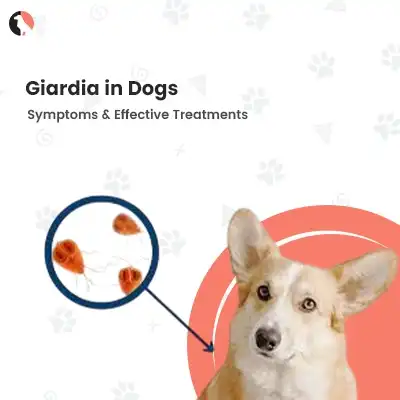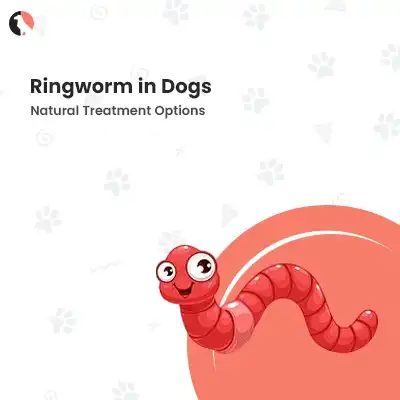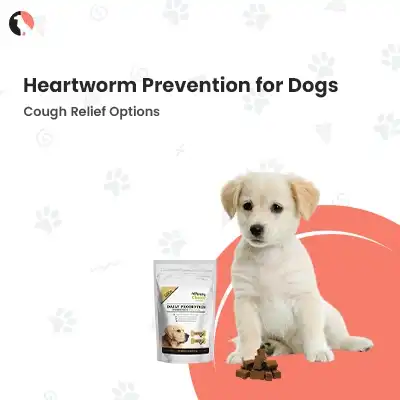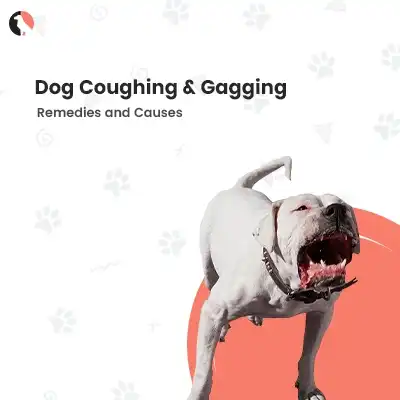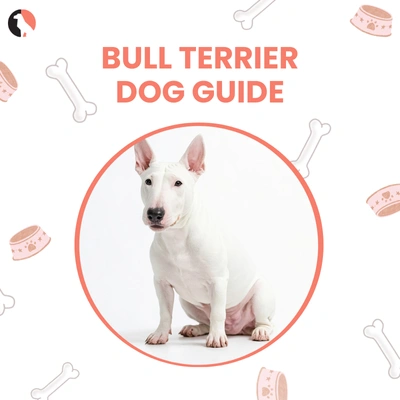The most important thing you shall do in keeping your dog healthy is heartworm prevention. The heartworms are a deadly parasite which resides in the heart and lungs. They are transmitted by Mosquitoes bite, and in case they are not treated on time, they may cause severe illness or even death.
The question that various pet owners seek to know is whether heartworm can be prevented by the use of antibiotics. The answer is no. Antibiotics are structured to combat bacteria not parasites such as heartworms. This fact implies that you will need another type of medicine to ensure your dog is safe.
With this blog, we will be describing what heartworm is, the prevalence of heartworm and how it can be prevented using the best heartworm products. Use of antibiotics in treatment will also be discussed and what you need to know before administering them to your dog. To keep your dog safe and healthy, you should make a little effort and provide proper care, you can be sure that your cat will be happy and not be infected by heartworm all the year round.
What Is Heartworm in Dogs?
Heartworm is a true condition that is brought on by lengthy, thin worms which take up hospitable an residence within a dog’s heart, lungs, and blood vessels. These worms are transmitted by mosquito. After being bitten by an infected animal the mosquito will contract babies of the worms. And then when that same mosquito bites your dog it sucks those baby worms into the dog. It lets the worms develop and become adults.
Heartworm can cause cough, unrest, breathing difficulties and heart injuries. It can be a killer if you do not treat it. That is why it is so necessary to understand how to avoid it before it gets worse and becomes serious about anything to do with our health.
Prevalence of Heartworm in Dogs?
Heartworm is a prevalent infection of dogs. It has been discovered in every 50 U.S states and also in most countries in the world. But mostly it occurs in hot and wet regions where mosquito insects are active, particularly in the southern and south eastern regions in the United States.
Heartworms get on thousands of dogs each year. It can be simply transmitted by a single mosquito bite even to those dogs who stay inside homes. Unfortunately, not all the symptoms of the heartworm are present immediately. It implies that, early detection of cases is not possible in most instances.
This is why you should test your dog instead of using heartworm prevention and do it regularly. Having protection all the year-round is a good thought even in the low-risk areas. Avoiding heartworms is far easier, and costs much less, opposed to a complete infection, which takes months and can be extremely taxing towards your dog.
What is the purpose of antibiotics in dogs, and what do they not do?
Antibiotics assist in treating dogs against bacterial infection. Vets usually apply them on issues such as skin or cut or urinary tract infection. These medications act either by killing or preventing growth of the bacteria which will make your dog recover quicker.
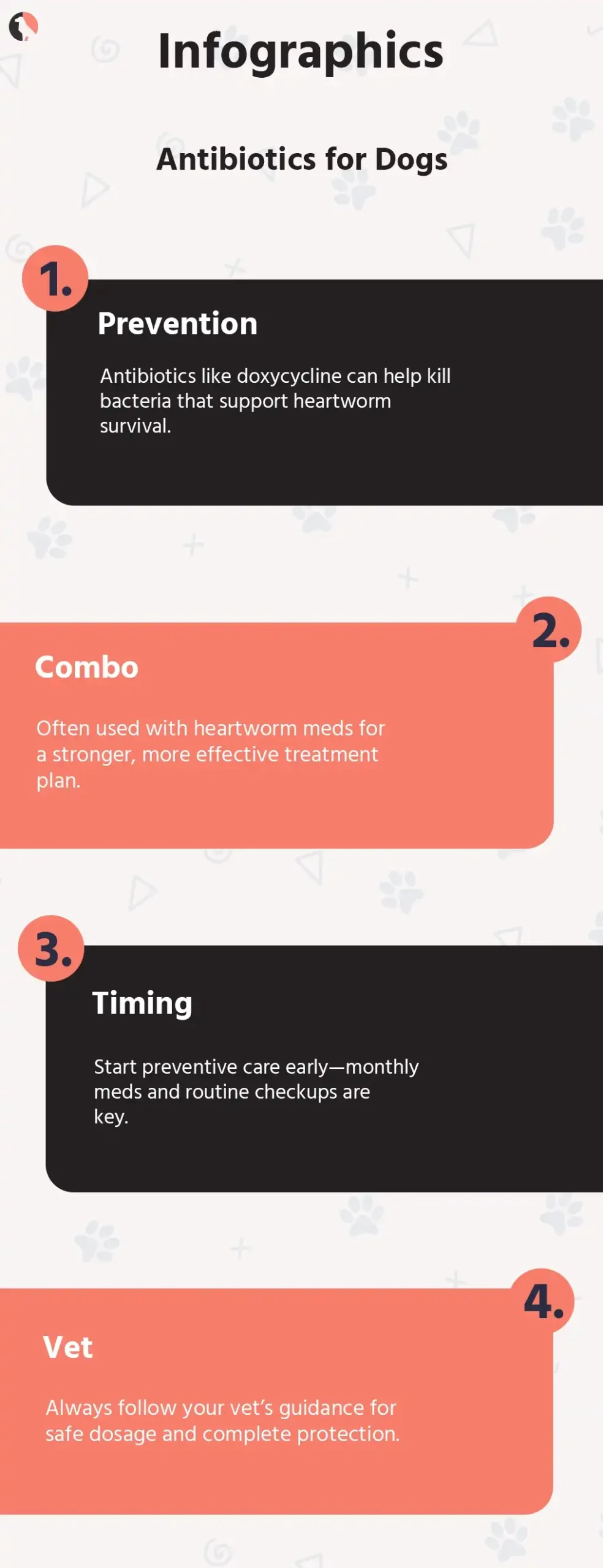
However, there is one thing that you should know and that is that antibiotics do not destroy heartworms. Heartworms parasites, not bacteria and therefore can not be treated with antibiotics. This implies that antibiotics are not supposed to be used in the prevention of heart worm.
In some cases, vets will administer some antibiotics such as doxycycline as an aspect of heartworm treatment. This is due to the fact that the heartworms possess a kind of bacteria known as Wolbachia. Killing that bacteria renders the worms low and they are easy to cure.
Even this is only applied on treatment of heartworms and not prevention. In case your dog is healthy and has no heartworms, there is no reason to administer antibiotics. Never use antibiotics unless your vet says so and always talk to your vet.
Best Heartworm Preventative for Dogs
The most effective way of keeping your dog out of heartworm is by using routine prevention. These are drugs that prevent baby heartworms (larvae) to develop into adult worms. The majority of them arrive in the form of chewable pills, drops in liquid form, or a long-term injection which is effective during 6 12 months.
The reliable brands include Heartgard Plus, Interceptor and Revolution and ProHeart. Such products are convenient to administer, and they are effective once provided in good time.
Heartworm preventatives are usually safe, though most dogs can be provided with them but after consultancy of a vet. Before starting your dog may also require a test in order to ensure a dose was not missed.
It is much simpler to prevent heartworm so why not do it? And it is a lot less expensive. Some preventive measures now would be sufficient to help your dog avoid grave health conditions later.
Choosing the Right Heartworm Preventative
Each and every dog does not require similar heartworm medication. The best decision would be based on the age, size, state of health, and the daily lifestyle of your dog.
Others are good on monthly pills whereas others require a long lasting shot. Dogs are also not keen on some medications, so it would be best to identify which is the best medication given to your dog.
Your vet will assist you in knowing the appropriate product and dose. Most vets will first perform a basic blood test before they begin the heartworm treatment process to determine whether your dog is already infected with heartworms.
It is highly essential that the medicine should be administered timely. Failure to use medicines can render your dog susceptible. Don t know what to use and how frequently? Please just consult your vet he/she can advise what is safe and most efficacious.
Antibiotics and Heartworm Issues
Heartworms cannot be stopped by antibiotics yet they can participate in treatment when a dog has been infected. This is attributed to the fact that heartworms harbor a kind of bacteria known as Wolbachia. To destroy this bacteria, vets usually prescribe a course of antibiotic such as doxycycline. By so doing this will weaken the worms and the treatment less hazardous to your dog.

Antibiotics are however not used as a form of prevention but during the treatment process. Do not feed your dog with antibiotics without the consent of a vet. In a wrong use, they may injure your dog or destroy treatment efficiency. Always take the recommendations of your vet.
For more pet care tips, visit our site ibelu



